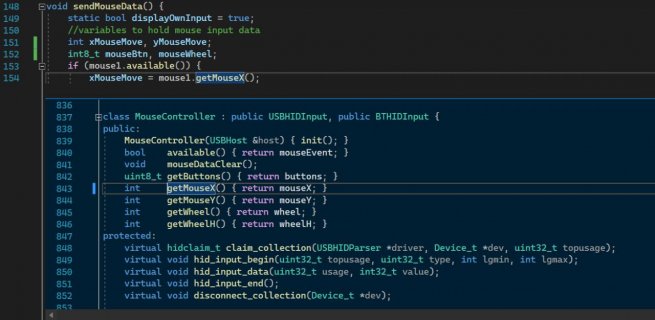Kuantronic
Member
Happy New Year Everyone! Here is my project and question related to it.
Project Description:
Converting mouse & keyboard inputs to game controller commands. A Teensy MicroMod is used with an ATP carrier board that has an USB host connector. The USB keyboard and mouse is connected to it via an USB hub. The Teensy takes in the keyboard & mouse command and sends data via UART to an Arduino Leonardo that's emulating an XBox controller. I took the example codes on the Teensy side and got a majority of the code to work but some stuff still needs to be figured out. I can't seem to figure it out myself right now so I thought I'd ask here in the forum.
Questions:
1. Is there a way to detect the following keys being pressed just by itself? Shift, Ctrl, Alt, Tab. What would the syntax be for it?
2. Are there syntaxes to detect when keyboard key presses are being held down and when it's being released?
Project Description:
Converting mouse & keyboard inputs to game controller commands. A Teensy MicroMod is used with an ATP carrier board that has an USB host connector. The USB keyboard and mouse is connected to it via an USB hub. The Teensy takes in the keyboard & mouse command and sends data via UART to an Arduino Leonardo that's emulating an XBox controller. I took the example codes on the Teensy side and got a majority of the code to work but some stuff still needs to be figured out. I can't seem to figure it out myself right now so I thought I'd ask here in the forum.
Questions:
1. Is there a way to detect the following keys being pressed just by itself? Shift, Ctrl, Alt, Tab. What would the syntax be for it?
2. Are there syntaxes to detect when keyboard key presses are being held down and when it's being released?


